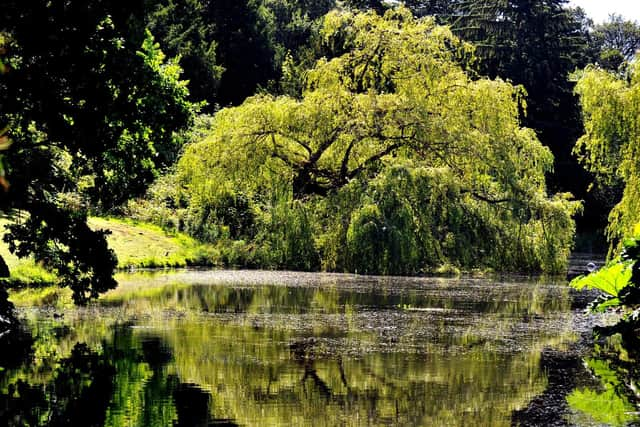'Urgent woodland creation can boost job prospects in Yorkshire's rural communities'


The carbon-capturing qualities of trees makes planting strategies key components of national efforts to avoid climate breakdown, slow the flow of water from the uplands to reduce flood risk and improve the environment and landscapes, but there is an additional human benefit too, Sir William Worsley said.
The Ryedale land owner, who was reappointed as the country’s Tree Champion in June, believes the right package of financial support to plant and manage trees long-term can bring benefits to the rural jobs market.
Advertisement
Hide AdAdvertisement
Hide AdSpeaking to The Yorkshire Post, Sir William, of Hovingham Hall, said: “Particularly in rural areas, the number of jobs that are dependent on timber and forestry is significant, and therefore the drive to plant more trees is an important opportunity.


“The more trees we get planted, the bigger the industry we can create and the more jobs we can create.”
He said woodland creation is “without question” a useful diversification option for farmers but because it takes time to reap its economic rewards, incentives to encourage tree planting must be part of supporting farming outside of the European Union’s Common Agricultural Policy.
Advertisement
Hide AdAdvertisement
Hide Ad“Trees don’t start producing any income until after about 20 years - this is why the future Environment Land Management Scheme is so important,” Sir William said, referring to the Government’s proposed method of paying farmers for delivering “public goods” post-Brexit.
“We need to be able to provide income during the period before tree planting becomes income-producing because it is something that provides rural jobs.”
His comments came after the country’s water companies announced a joint target to plant 11 million new trees by 2030, as the industry seeks to become carbon neutral.
Advertisement
Hide AdAdvertisement
Hide AdYorkshire Water, which owns more than 70,000 acres across the county, intends to plant a million trees by 2029.
Richard Emmott, the firm’s director of communications, said Yorkshire Water’s farmer tenants can capitalise on the project.
“If the land’s right for planting trees, then it can be quite a positive benefit for our tenants. We have about 50 tenanted farms, a lot of those are in the upland and are fairly marginal sheep farms, so additional sources of income for them is quite useful.
“If we can build in (woodland) maintenance arrangements with people who are already managing our land, then you are putting money back into the local economy, keeping them on the land and managing it, as well as planting trees so that’s a win-win.”
Advertisement
Hide AdAdvertisement
Hide AdSir William said he expected to meet Environment Secretary Theresa Villiers next month to discuss the benefits of tree planting.